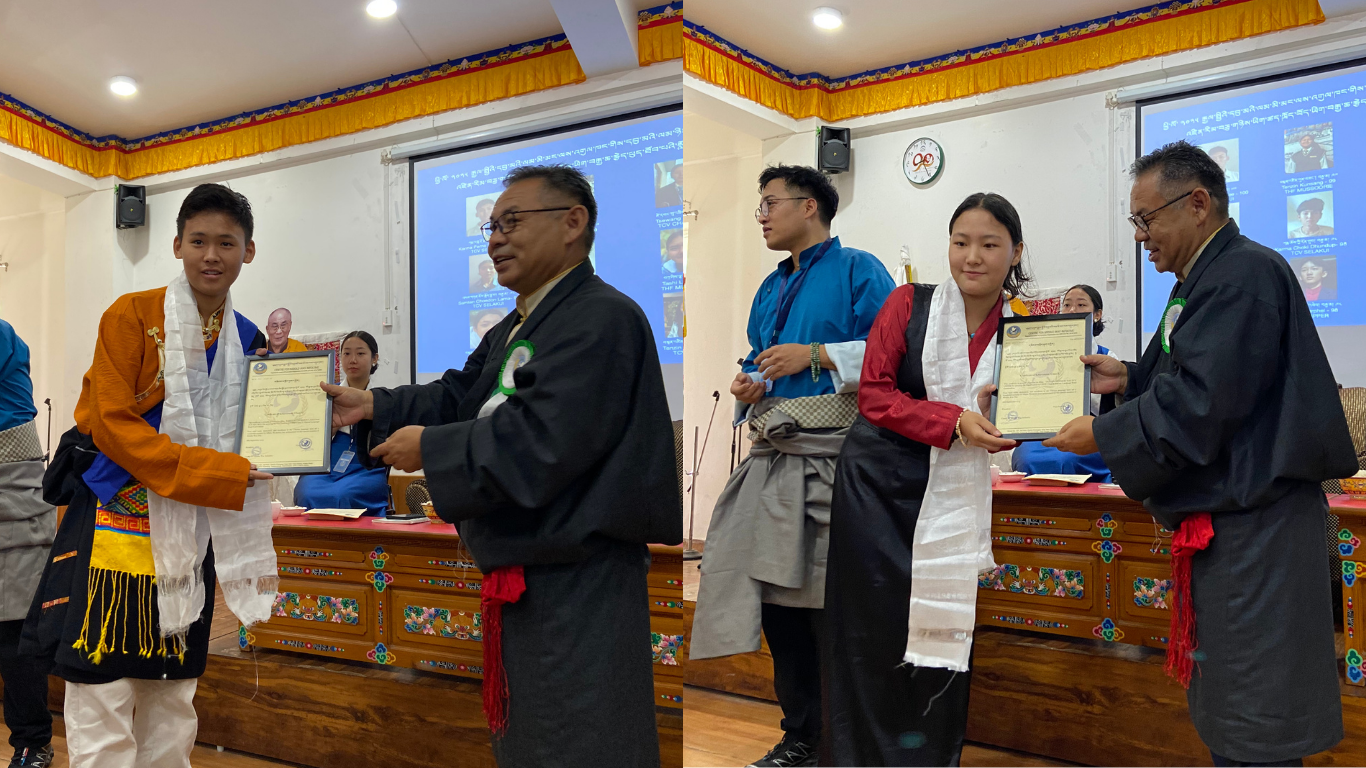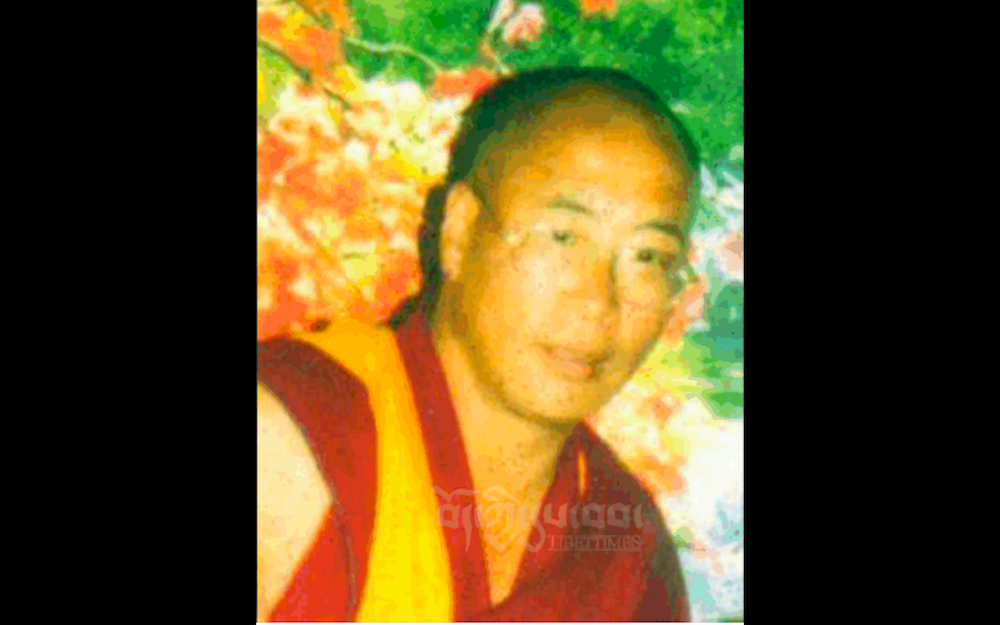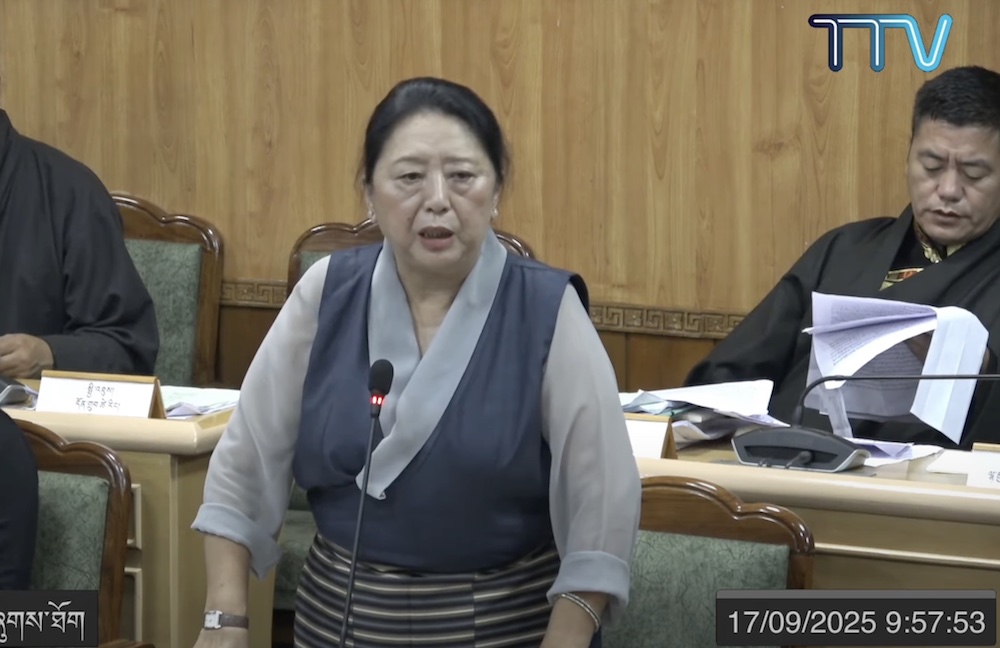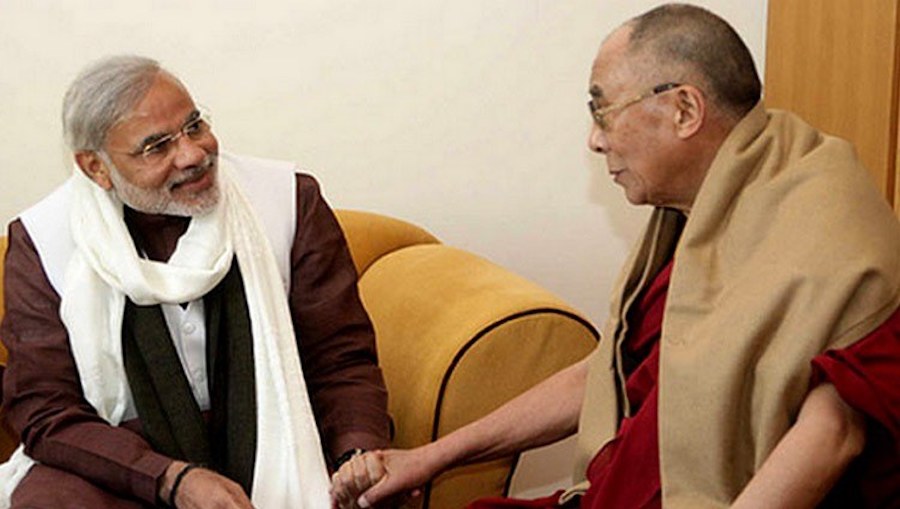Tenzin Nyidon
DHARAMSHALA, Sept. 18: On the occasion of the Middle Way Day, the Global Tibetan People’s Movement for Middle Way Approach awarded a total prize money of ₹1Lakh to 17 students who excelled in this year’s CBSE class X and class XII Tibetan language examinations.
Tenzin Shinyi, Vice President of the GTPM for the Middle Way Approach, highlighted the significance of the day, noting that Middle Way Day was officially established by the Tibetan Parliament-in-Exile on September 18, 1997, and is observed annually by the organisation. She stressed that while the policy is crucial, equal importance lies in preserving Tibetan religion and culture and urgently addressing the critical situation inside Tibet. She added that the organization works each year to raise awareness about the Tibet issue among Tibetans and Chinese alike, exposing China’s continued denial of basic rights and efforts to suppress Tibetan language, culture, and identity. “The Middle Way Approach is rooted in Tibet’s history as an independent nation and remains the most pragmatic solution to the current crisis,” she stated.
Passang Tsering, Principal of the College for Higher Tibetan Studies (CHTS), Sarah, served as the special guest and emphasized the urgent need to preserve Tibetan language and culture. He remarked that while the importance of safeguarding them has been spoken of for generations, the real question is what individuals, organizations, and the government are doing to ensure their protection. Speaking on the organisation’s recognition of students’ achievements, he said such acknowledgment is a meaningful way of showing appreciation. However, he stressed that true preservation requires daily practice—speaking pure Tibetan without mixing other languages and paying closer attention to the use of proper terminology.
He also addressed the challenges confronting Tibetan society, particularly the decline in enrollment at traditional institutions, and highlighted the need to strengthen the three pillars of education to safeguard Tibetan identity and culture. “Monastic education, family education, and school education have become increasingly vital in today’s changing times. If these three systems work in cooperation and support one another, they can instill a strong sense of Tibetan identity and nurture love and commitment to our culture and language. Placing greater emphasis on these pillars will undoubtedly be beneficial,” he said.
This year, 12 Class X students and 5 Class XII students excelled in the CBSE Tibetan language examinations; however, only two were present at the event to receive their Certificate of Achievement along with a cash prize of ₹8,000.
Speaking to Phayul, Karma Pema Dorjee from TCV Selakui, who scored a perfect 100 in his Class X Tibetan exam, expressed his joy at the recognition. He credited his success to his mother, who introduced him to the Tibetan alphabet at a very young age, as well as to his school and teacher for their dedicated efforts in teaching Tibetan with the aim of preserving the language. He further opined on the importance of studying Tibetan, noting that the loss of one’s language is akin to losing one’s very identity.
Tenzin Methok from Upper TCV, who scored 98, shared that she hails from Amdo Golog and credited her achievement to her parents, who have always emphasized the importance of the Tibetan language, as well as to her teachers. She urged young Tibetans not to view learning Tibetan as difficult, pointing out that while many today focus more on English, both languages have their own distinct qualities. She added that Tibetan is not as hard as it is often perceived, especially since it is already the language spoken in daily life.









